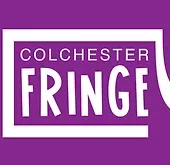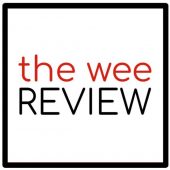
With the world in a particularly volatile state and politics in flux, political theatre makers don’t have a shortage of material to choose from. From geopolitics and conflicts around the globe, to the existential threat of climate change, to the personal politics of gender, abortion, sexual abuse, and LGBTQIA issues, political theatre is well represented at the Fringe 25.
The world has looked in horror while genocide continues unabated in Palestine. Several Palestinian companies and actors are represented at the Fringe alongside a mini‑festival showcasing artists from Palestine and the diaspora (www.FringePalestine.com).
Presented by the Palestinian Comedy Club and the Pleasance at the Pleasance Dome, The Horse of Jenin is a play about a child growing up in Jenin in occupied Palestine. After the 2002 invasion a German artist and local children build a five‑metre tall horse from the debris as a symbol of hope and resistance. In 2023, the horse is destroyed. Using storytelling, mask and stand up, Palestinian actor and comedian, Alaa Shehada, explores what happened to the Horse of Jenin and rebuilds it on stage in an act of resilience and hope.
Set in 2045, Farah Saleh’s Balfour Reparations (Summerhall) confronts Britain’s colonial legacy in Palestine, focusing on James Arthur Balfour and his role in denying Palestinian political rights. (His statue still stands tall and proud on a hillside not far from Edinburgh in his native East Lothian.) Imagining a British letter of apology to the Palestinian people and a promise of reparations, we, the audience, become the reparations’ evaluation committee and are asked to determine what justice might look like.
Renowned Palestinian comedian, Sami Abu‑Wardeh, is a late addition to the Pleasance programme at the Fringe with his show, Peace de Resistance. Digging into his family’s ties with resistance and the extraordinary choices people have to make, Abu‑Wardeh’s blend of clowning and storytelling looks at the absurdity and untold humour of resistance.
Meanwhile Russia’s war on Ukraine continues unabated and increasingly eclipsed by war in the Middle East. But Katia Haddad’s MARIUPOL (at the Pleasance), based on her own memories of the city and those of survivors of the siege, puts the spotlight firmly back on Ukraine. In summer 1992, Galina, a Russian student, meets Steve, a Ukrainian navy officer. Thirty years later Galina comes looking for Steve with a heartrending request. On opposite sides of the war, their loves are nonetheless connected. This looks likely to be a sell‑out production; get your tickets early.
The jubilation and hopes of the Arab Spring of 2011 seem like another world now. Actor Khalid Abdalla was an activist in the Egyptian uprising in 2011; in Nowhere (Traverse) Abdalla brings together the personal and the political to look at how we find agency amongst the seismic events of world history.
Given the state of politics in the USA, a clowning show or two wouldn’t be out of order. American offerings on the Fringe this year include shows about sexual abuse, youth violence and gun control. Two shows to look out for are Rift at the Traverse, and at the Pleasance the rather grandiosely named #Charlottesville: the show that Trump does not want you to see (let’s hope it lives up to its title).
In 2017, a Unite the Right rally was held which purported to bring the right together (a motley collection of white supremacists, neo‑Nazis, Klansmen and far‑right militia) in response to the city’s proposal to remove a statue of the Confederate General Robert E Lee in Charlottesville. The rally, which had by then been declared unlawful, turned violent as protestors clashed with counter‑protestors. Fresh from a sell‑out run in Washington DC, #Charlottesville is constructed from first‑hand accounts, court transcripts, and news reports about the aftermath of the rally and examines how we deal with white supremacy and nationalism.
Continuing the theme of white supremacy and ideological difference, Rift (at the Traverse), Gabriel Jason Dean’s new play, is inspired by his own relationship with his brother. Two brothers, one a progressive novelist, the other a convicted murderer and member of a white supremacist gang, share a traumatic childhood. Rift asks whether it’s possible to really love someone whose values are abhorrent to you.
Tom at the Farm, at the EICC at the Pleasance, tells the story of Tom, who travels to a remote farm for the funeral of his lover, where he is blindsided to discover that his lover’s family don’t know who he is or what relationship he had with the deceased man. Originally set in Canada, the play has made a successful transposition to a Brazilian setting. Winner of multiple awards, this taut psychological thriller confronting patriarchal violence and the crisis of masculinity is likely to be a hot ticket.
Over at Space UK, David Lee Morgan uses spoken word to link revolutionary history with today’s struggle for freedom in Uncle Tom’s War: Haiti and the Whipping Machine. By all accounts, Morgan gives a blisteringly angry account of the Haitian revolution and the ensuing French and US revolutions and contemporary fights for freedom.
While climate change is the existential threat of our times, it feels strange that there are relatively few offerings dealing with the crisis that ultimately affects us all and those coming after us. Throughout August, Venue 13 will put on 50 short plays presented across 20 events, blending new commissions with highlights from past festivals, celebrating the tenth anniversary of Climate Change Theatre Action 2025 (CCTA 2025) with a varied programme responding to the theme “The Time Is Now”, reflecting the urgency that is needed.
“The ones who profit most from the idea that we’re doomed are the oil companies and the people massively polluting our planet. If we allow ourselves to think there’s nothing we can do, we won’t do anything,” reflects playwright Flora Wilson Brown, author of The Beautiful Future is Coming. Jumping between 1856, 2027 and 2100, the play explores the climate crisis through the eyes of three couples, attempting to invoke a response that is at once more emotional and propels us towards action.
Beyond these picks, there are revivals of My Name is Rachel Corrie (Zoo Southside) and The Crucible (C Arts), both of which seem chillingly relevant today.
“`



























